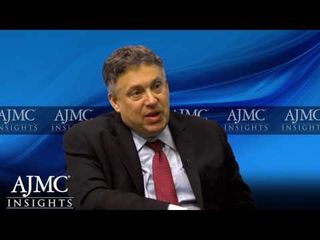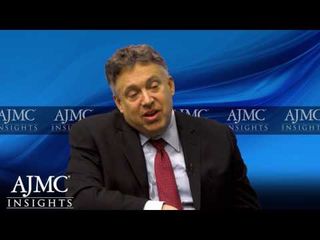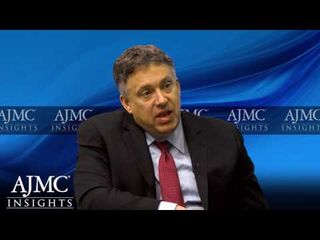
Oncology
Latest News
Latest Videos

CME Content
More News

The Bonnie Addario Lung Cancer Foundation has developed a registry that can serve as a repository for data on patients with lung cancer-a means to empower patients and assist care providers to deliver personalized medicine in a patient-centered manner.

Precision medicine is increasingly being utilized in oncology. Aurora Health Care has implemented Syapse software to integrate molecular data into the electronic health record to accommodate precision medicine findings.

The results of a phase 2 study that explored the effects of luspatercept in patients with lower-risk myelodysplastic syndromes (MDS) were presented at the 22nd Congress of the European Hematology Association by Acceleron Pharma Inc. The company is developing the drug with Celgene.

Treatment decisions could be assisted through molecular profiling, which would allow patients and oncologists to evaluate the biological features of the tumor.

New research has identified a gene that enables paclitaxel to spread cancer to the lungs even as it shrinks tumors in the breast.

An update on the latest developments in the world of oncology care: product approvals, clinical developments, health policy changes, and more.

New research has found that the steady increase in the price of targeted oral anticancer medications is washing out the potential for savings that patients would experience in their out-of-pocket payments following closure of the Medicare Part D coverage gap.

Amidst news of Senator John McCain’s glioblastoma diagnosis, a recent discussion between 2 neuro-oncology researchers explored the reasons why this aggressive brain tumor is so difficult to manage, and outlined the ongoing investigations into possible therapies.

There’s a lot happening in clinical practice with immunotherapy treatments: expanded indications for nivolumab and ipilimumab, biomarkers to judge patient response to combinations, and developments with CAR-T.

Provider roles in team-based care in oncology need clarity, and now, results from a new study affirm the confusion experience by patients treated for breast cancer on who should lead their care posttreatment.

The approval follows a review of phase 2 results from CheckMate-142.

The new immunotherapy of chimeric antigen receptor (CAR)-T cells has demonstrated the ability to increase clinical remission in multiple myeloma patients by targeting the B-cell maturation protein that participates in disease progression.

Enasidenib (Idhifa), developed by Celgene and Agios, has been granted FDA approval in tandem with a companion diagnostic test to detect IDH-2 mutations.

After the Affordable Care Act (ACA) required private insurers to pay the standard-of-care costs for patients participating in approved clinical trials, the rate of patients cleared by their insurer to take part in early-phase oncology trials has increased, a new study has found.

The FDA has announced a regulatory plan that could shift the trajectory on tobacco-related disease and death.

The FDA has expanded the indication of Bristol-Myers Squibb’s Yervoy (ipilimumab) to include the treatment of pediatric patients 12 years of age and older with unresectable or metastatic melanoma.

Venetoclax (Venclexta), in combination with low dose cytarabine, has been granted a breakthrough therapy designation for use in elderly, treatment-naive patients with acute myeloid leukemia (AML) who cannot handle intensive chemotherapy.

AstraZeneca announced that its immuno-oncology drug durvalumab, in combination with tremelimumab, failed to meet a progression-free survival endpoint in the MYSTIC trial in patients with metastatic non-small cell lung cancer (NSCLC).

A new study has analyzed data from randomized controlled trials in oncology that used surrogate endpoints and measured their relation with treatment effectiveness and patient survival in the real world.

Study used gene biomarker to identify which patients with colon cancer would not benefit from chemotherapy.

During a panel hosted by the National Cancer Institute (NCI), patient advocates and survivorship experts discussed the strides made in the field of cancer survivorship research.

Researchers have identified a cellular signaling pathway that when activated by mutations may prevent immune cells from infiltrating bladder tumors, thus making the cancer resistant to immune checkpoint inhibitors.

This study investigates the cost-effectiveness of a community-based patient navigation program to improve cervical cancer screening.

The Women’s Health Initiative Dietary Modification Trial examined the long-term influence of low-fat eating patterns on the breast cancer mortality rate.

Patient refusal, symptom burden, and diagnostic disparities were identified as some of the most common barriers encountered when recruiting patients with advanced cancer for palliative treatment in the emergency department (ED).














